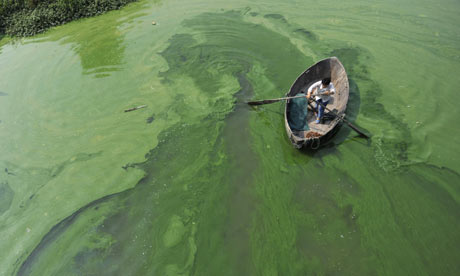Re: Top 10 oil fields (Cantarell kaput)
I think it is rather simple. In the '70s they learned a very important lesson. If you spend more than you tax and if you give it to people who need it for necessities and maybe an occasional fling, like buying the expensive toilet paper, then prices will rise, wages will rise as people buy more stuff, and inflation ruins the oligarch's day. Even though Oligarchs can pretty much increase their income as much as they feel like, they are not wasteful. Why divert billions of inflated dollars when hundreds of millions will do just as well sans inflation? So, instead, Uncle Sam bypass that troublesome Main Street funding and gives it directly to the Oligarchs who then pay themselves 100 million dollar bonuses as soon as he turns his back.
And, unlike the people who would squander the money on food, medical care, prescriptions, and a case or two of beer a month, (THAT IS EVIL NASTY SOCIALISM) the Oligarch's money gets reinvested in gold, treasuries, oil, and other fairly safe investments (THAT IS GOD-GIVEN FREE MARKET CAPITALISM) so that after the whole mess crashes the oligarchs can move into their gated communities, surround themselves with servants and the best in medical care, and live a life of peaceful joyous contemplation and enrich their souls in the finer points of Ayn Rand's conservative philosophy.
There is something very interesting going on with the ZIRP, i.e, incomes fall and prices de-flate. Workers like me are on their knees.
This is something I don't understand, but it is very interesting: How can govn'ts print forever, and prices fall?
This is something I don't understand, but it is very interesting: How can govn'ts print forever, and prices fall?
And, unlike the people who would squander the money on food, medical care, prescriptions, and a case or two of beer a month, (THAT IS EVIL NASTY SOCIALISM) the Oligarch's money gets reinvested in gold, treasuries, oil, and other fairly safe investments (THAT IS GOD-GIVEN FREE MARKET CAPITALISM) so that after the whole mess crashes the oligarchs can move into their gated communities, surround themselves with servants and the best in medical care, and live a life of peaceful joyous contemplation and enrich their souls in the finer points of Ayn Rand's conservative philosophy.


 ?) are far more optimistic as to the economic value of algae power than anything else I've seen.
?) are far more optimistic as to the economic value of algae power than anything else I've seen.
Comment